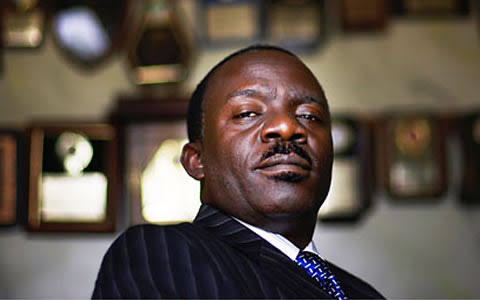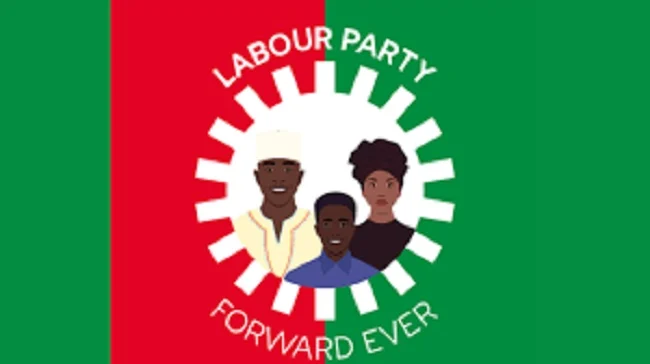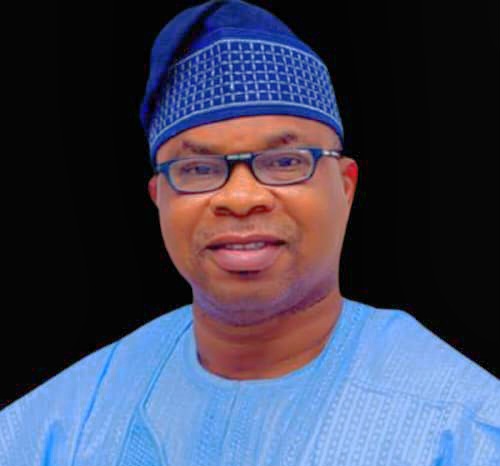Opinion
Illegality Of Sealing off Premises In Nigeria

Across Nigeria, commercial and residential premises are sealed off by government agencies in a purported execution of regulatory or tax mandate. Some private bodies equally seal off the houses of fellow citizens on grounds of non-payment of debts. Even landlords seal off apartments for failure of tenants to pay rents as and when due. However, when premises are sealed off without first obtaining a court order, it is tantamount to self-help—an unlawful method of exercising power without recourse to judicial process. Nigerian courts have consistently condemned this approach on the grounds that it is crude, illegal and unconstitutional.
Self-help refers to actions taken by a person or authority to enforce their alleged rights or claims without judicial authorization. Self-help is particularly unlawful when it involves force, intimidation, or interference with rights without legal sanction. The Supreme Court in the case of The Military Governor of Lagos State v. Chief Emeka Odumegwu Ojukwu (1986) 1 NWLR (Pt. 18) 621, described self-help by government as executive lawlessness, emphasizing that even the State must abide by the rule of law because it rules by law.
Ground rent collection and presidential intervention.
Recently, the Minister of the FCT, Nyesom Wike, justified his decision to seal off offices including the PDP secretariat and the FIRS office in Abuja for alleged violations of urban planning regulations. The controversial nature of the action, executed without prior judicial orders, drew widespread condemnation as critics argued that it represented another instance of executive overreach and self-help by state authorities. The incident highlights the ongoing tension between administrative enforcement and constitutional rights and underscores the urgent need for judicial oversight in property-related sanctions.
Following widespread public concern, President Bola Tinubu intervened in the extrajudicial move by the Authorities of the Federal Capital Territory Authority (FCTA) to enforce ground rent defaults by granting a 14-day grace period before sanctions would apply. This step not only reflected public sensitivity to enforcement actions but also demonstrated the importance of procedural fairness and notice. It further emphasized the role of dialogue and legal compliance over coercive measures like sealing off properties without judicial input.
Judicial decisions on sealing off premises without Court Order
Several statutory frameworks empower authorities to regulate premises—such as the Urban and Regional Planning Act (1992), Lagos State Physical Planning Permit Regulations, Local Government Laws, tax and health laws. However, enforcement must comply with procedural safeguards such as issuance of notices and provision for hearing, failing which the action is void.
In many cases, Nigerian courts have held that no agency of government has the right to seal off any premises without first obtaining a valid court order. This is rooted in Sections 36, 43 and 44 of the 1999 Constitution which guarantee the fundamental rights of citizens to fair hearing, right to privacy of their homes, right to acquire and own immovable property anywhere in Nigeria and right not to have interest in any such property acquired compulsorily in any part of Nigeria except in the manner and for the purposes prescribed by a law. Similar rights are protected by the African Charter on Human and Peoples’ Rights Ratification and Enforcement Act.
Sealing off premises under military regime
Under the defunct military junta, the courts kicked against the practice of sealing off premises. It was the position of the courts that the occupier or owner of a property was entitled to be notified, heard, and subjected to judicial scrutiny before any action could be taken by public authorities and private bodies or individuals. Since the premises of newspaper houses were regularly sealed off under the defunct military junta, a couple of examples are hereunder reviewed.
Concord Press of Nigeria Limited v Attorney-General of the Federation (unreported suit FHC/L/CS/608/94)
In the case of the National Concord Newspaper v Attorney-General of the Federation, the Applicant’s premises along the airport road, Ikeja in Lagos State were sealed off by armed soldiers. In defending the action, the legal notice submitted to the court stated that the premises of the newspaper were “sealed up”. Our law firm sued the military junta on the instructions of the publisher of the newspaper, the late Bashorun M.K.O Abiola.
The presiding Judge, Justice James Oduneye agreed with my submission that since the enabling decree provided that the premises of offending newspaper could be sealed off the legal notice was illegal as it stated that the premises be “sealed up”. The action was also faulted on the grounds that the Applicant was not afforded the opportunity to make a representative to the authorities before the military invasion of the premises. Consequently, the court awarded damages of N500,000 and ordered the immediate reopening of the newspaper. The Court warned against punitive actions taken by government authorities without affording the target an opportunity to be heard
Attorney-General of the Federation & ors v. Punch Nigeria Ltd & Anor (2019) LPELR-48142(SC):
On July 29, 1994, a combined team of soldiers and police personnel invaded and sealed off the premises of the Punch Newspaper in Ikeja, Lagos State. The editor of the newspaper, Bola Bolawole who was on duty at the material time was arrested and detained. On behalf of the newspaper, Chief Gani Fawehinmi SAN challenged the action of the Sani Abacha military junta at the Federal High Court.
In his epochal judgment, Justice T.A. Odunowo condemned the actions of the security agencies and the state for failing to follow due process. The Court held that the rule of law must be observed by the State even under a state of emergency. As the respondent could not justify the reckless abuse of power, the court ordered the respondents to vacate the premises and pay damages of N25 million to PUNCH and an additional sum of N100,000 to the editor, Mr. Bola Bolawole for his unlawful detention.
The appeals filed by the Federal Government against the judgment were dismissed with costs by both the Supreme Court and the Court of Appeal. It was the view of both appellate courts that the appeals were lacking in merit.
Sealing off premises under a democratic government
Under the current political dispensation, the premises of any house or business cannot be sealed off without a court order and without affording the owner or occupier the opportunity of fair hearing. In Bamgboye v. University of Ilorin (1999) 10 NWLR (Pt. 622) 290, the Supreme Court emphasized that no authority or institution can take adverse action against a citizen’s property or rights without affording him an opportunity to be heard in accordance with Section 36 of the Constitution.
Unilateral sealing off premises amounts to constructive expropriation or deprivation of property. It is a tortious interference with possessory rights.
In Eze v. Spring Bank Plc (2011) LPELR-CA/PH/255/2009, the Court of Appeal reaffirmed that forcibly locking up premises, denying access, or disrupting possession without judicial authorization constitutes trespass and a violation of the right to property. The Court emphasized that the proper procedure is through court processes, not administrative fiat.
The right to fair hearing is sacrosanct. When a government agency seals off a property without informing the owner or securing judicial approval, it breaches the constitutional guarantee. In Ayo Fayose v. EFCC (unreported Suit No. FHC/IB/CS/47/201), the Economic and Financial Crimes Commission (EFCC) sealed off the Ibadan residence of the Applicant during an investigation. However, it did so without obtaining a court order.
The Federal High Court in Ibadan ruled the action illegal and awarded N10 million in damages against the EFCC for violating the claimant’s constitutional right to property. The Court emphasized that investigative bodies—even those empowered to tackle financial crimes—must operate within constitutional limits. The ruling set a strong precedent against sealing off premises without a court order.
Unlawful sealing of business premises represents institutional disregard for the rule of law. In Association of Motor Dealers of Nigeria v. Nigeria Customs Service, (unreported Suit No. FHC/L/CS/1233/2021), the Federal High Court (per Akintayo Aluko J.) ruled that the Nigeria Customs Service (NCS) was liable for sealing off over 400 car dealerships in Lagos without judicial authorization. The dealers sued for unlawful invasion, and the Court found that the NCS acted outside the bounds of its statutory authority by sealing off the auto shops arbitrarily. In awarding N500 million in general and aggravated damages, the Court condemned the “high-handed and illegal” conduct of the agency, reaffirming that the rule of law cannot be sacrificed on the altar of administrative convenience.
Sealing off premises is inherently coercive and falls under judicial power. Administrative bodies that bypass courts violate separation of powers. In Union Bank of Nigeria Plc v. Alhaji Adams Ajabule & Another [2011] NGSC 5 (15 December 2011), the Supreme Court emphasized that no person or authority is permitted to resort to self-help in enforcing any right, regardless of how legitimate the underlying claim may be. The bank’s attempt to enforce a claim without recourse to judicial adjudication was roundly condemned.
The judgment reiterates that judicial process must precede any enforcement action, and any bypass of the courts amounts to executive lawlessness and abuse of power. This decision is critical in strengthening the argument that regulatory or enforcement bodies cannot unilaterally seal premises or properties without judicial backing.
Conclusion.
It is crystal clear from all the decided cases that the courts have ruled that individuals, financial institutions and government agencies, are not permitted to engage in the collection of rents, levies and taxes without strict compliance with legal and procedural rules. Where the law empowers regulatory agencies to seal off the premises of defaulters, the right of such defaulters to fair hearing must be respected in strict compliance with section 36 of the Nigerian Constitution. Enforcement agencies must act within the bounds of the law by applying for court orders before sealing off the any premises of any person.
Finally, it is pertinent to draw the attention of governments and citizens to the case of Attorney-General of Lagos State vs. Attorney-General of the Federation (2004) 18 NWLR (PT 904) 1 at 127-128, where the Supreme Court enjoined governments and citizens to always resolve disputes by seeking redress in court and refrain form resorting to self help. According to Niki Tobi JSC of blessed memory:
“In a society where the rule of law prevails, self help is not available to the Executive or any arm of government. In view of the fact that such a conduct could breed anarchy and totalitarianism, and since anarchy and totalitarianism are antitheses to democracy, courts operating the rule of law, the life blood of democracy, are under a constitutional duty to stand against such action. The courts are available to accommodate all sorts of grievances that are justiciable in law and section 6 of the Constitution gives the courts power to adjudicate on matters between two or more competing parties. In our democracy all the Governments of this country as well as organizations and individuals must kowtow to the due process of the law and this they can vindicate by resorting to the courts for redress in the event of any grievance.”
Thenewsnigeria.com.ng
Opinion
Edo State To Spend N1billion On Armoured Car For Speaker, N4.6billion On Vehicles For Lawmakers

The budget also reveals that N4.6 billion is planned for vehicles for the 25 members of the State House of Assembly.
Reporters’ review of the Edo State approved budget for 2026 shows that N1billion has been allocated to purchase an armoured vehicle for the Speaker of the State House of Assembly.
The budget also reveals that N4.6 billion is planned for vehicles for the 25 members of the State House of Assembly.
Also, N50million is planned for the purchase of refrigerators and other equipment for four directors. The House of Assembly Commission also plans to spend 200 million naira on roof and window replacement for its office building.
Earlier, a civic accountability group, MonITng, raised concerns over the execution of a multi-million-naira education project in Edo State, citing poor quality, procurement irregularities, and a recurring pattern of questionable contract awards.
“A project titled ‘Building of Blocks of Classrooms at Ojah Comprehensive High School, Akoko LGA, Edo State’ with project code ZIP20240448, valued at ₦222,000,000.00, and awarded under the Federal Polytechnic Auchi, Federal Ministry of Education, has raised serious concerns about the quality of execution, contract pricing, and procurement integrity.”
According to MonITng, its team tracked and inspected the project site. “Our team tracked and visited the project site and confirmed that although the classrooms were completed, they were poorly constructed.”
The group further noted: “The structure lacks basic finishing elements such as landscaping, proper drainage, and standard finishing works, all of which should have been included and adequately executed, given the huge sum budgeted for the project.”
It added that “the poor quality of work raises questions about project supervision, contract oversight, and how the allocated funds were spent.”
MonITng also linked the project to a contractor allegedly tied to multiple controversial contracts. “Even more troubling is the pattern we uncovered. The project was executed by Sam Sedi Nig. LTD, a company that has consistently received major contracts facilitated by Senator Adams Oshiomhole.”
The group claimed that “this same contractor handled the abandoned ERGP20245252 project, Construction of Warake to Ivbiaro Road in Owan East LGA, valued at ₦200,000,000.00, which remains incomplete despite significant disbursements.”
“Additionally, the same company implemented a controversial agricultural empowerment programme in Etsako communities, also facilitated by Senator Oshiomhole.”
MonITng alleged that “the recurring involvement of this contractor in multiple projects, combined with substandard delivery and abandoned works, suggests a pattern of procurement manipulation, inflated contracts, and possible diversion of public resources.”
It added that “the situation reflects how public projects, although completed on paper, often fail to deliver a meaningful impact due to corruption, poor supervision, and a lack of accountability.”
Opinion
APC E-registration Plot To Manipulate 2027 Polls – Ogun LP

The Ogun State chapter of the Labour Party has accused the All Progressives Congress of using its ongoing electronic membership registration to allegedly manipulate figures ahead of the 2027 general elections.
In a statement issued on Wednesday, the state chairman of the Labour Party, Chief Oluwabukola Soyoye, claimed that the APC’s e-registration exercise was designed to digitally inflate its membership strength and project a false image of popularity in the state.
Soyoye alleged that the ruling party had resorted to electronic registration because it could no longer mobilise people openly, insisting that the administration of Governor Dapo Abiodun had suffered widespread rejection due to what he described as underperformance.
According to him, the APC’s e-registration, presented as a routine membership drive, was in reality “a political referendum that exposes the deep rejection of Governor Dapo Abiodun and his black-market style of governance by the people of Ogun State.
“The people of Ogun are now wiser. They have deliberately refused to participate in any open, physical APC registration because they know the ruling party has failed them,” Soyoye said.
“That is why the APC has resorted to this so-called electronic registration — a system that allows figures to be fabricated behind closed doors without the presence of real members.”
The LP further alleged that the electronic platform could be used to manipulate membership data, inflate figures and create a misleading narrative of political dominance ahead of 2027
“What we are witnessing is not a genuine political exercise but a fraudulent digital operation designed to manufacture legitimacy for a government that has lost the confidence of the people,” Soyoye added.
Opinion
Let These Campaigns Of Calumny Against AMBO Stop Forthwith

By Kola Odepeju
“Calumny Is Only The Noise Of Madmen” –Diogenes
As Osun state gubernatorial election draws nearer, we’re now at the dawn of the campaigns for the coming election and so as characteristic of Nigeria’s democracy, wrong accusations, blackmails, character assassinations and all manner of negative campaigns aimed at demarketing the most popular candidate with the highest chances of coasting home to victory in a major election of this nature, must surface. And so in our own dear Osun state here this ugly trend has started surfacing. The mudslinging that has started from Governor Ademola Adeleke’s Accord Party’s camp against the APC gubernatorial candidate, Asiwaju Munirudeen Bola Oyebamiji AMBO is ‘normal’ and expected because with the massive support for AMBO across the nook and cranny of the state, it’s crystal clear that he’s the candidate to beat.
As mentioned above, a candidate to beat in any major election is bound to face vilifications by his opponents who see him as a threat and a stumbling block against the success of their own ambitions. Therefore given the nature of our politics in this part of the world, the negative campaigns that have started against AMBO are no surprise. We witnessed the same thing against the incumbent president, Asiwaju Bola Tinubu during the 2023 electioneering campaigns for the office of the country’s president. But against all odds, Asiwaju Tinubu emerged victorious. So as Asiwaju Tinubu emerged victorious in 2023, l have that strong conviction that our own Asiwaju Bola Oyebamiji will also become victorious in the coming August gubernatorial election in the state irrespective of whatever negative campaigns that may come up against him. This is because the AMBO governorship project is divinely ordained.
Amongst other attacks that are still likely to come up against him as we face the election and as the election faces us, we have heard from those who are afraid of losing power that AMBO is the architect of half salaries in Osun (as if he was the governor in that era). We have also heard from them that he’s not youth-friendly. The spokesperson to governor Adeleke, Malam Olawale Rasheed also amplified these two negative points in his latest article aimed at demarketing AMBO. Like I mentioned, the negative campaigns have just started. We are still going to hear more. I wonder why people cannot engage in issues-based campaigns instead of vilifying candidates.
Ambo has told Osun youths the program he has for them. He has promised to take care of them. And as a God-fearing and honest leader who keeps to his words, l believe he will not renege on his promise for the youths and also his promises for Osun people generally. So let those who revel in vilifying a credible candidate like AMBO tell Osun youths the programs they have for them rather than calumniating a visionary and capable leader who has what it takes to deliver the goods. Of course AMBO – being a focused leader – needs not to bother himself about the negative campaigns being circulated against him by his political detractors because William Shakespeare had for long told us that “*Be thou as chaste as ice, and as pure as snow, thou shall not escape calumny*”. And George Washington also mentioned it that “*Silence is the best answer to false accusations*”.
Finally, the Yorubas in their words do say that “maligning the honey doesn’t reduce its sweetness”. No matter the level of negative campaigns against the APC gubernatorial candidate towards the election, it won’t reduce the love the Osun people have for him while it won’t deter them from casting their votes for him in the upcoming gubernatorial election in the state. He will surely come out victorious by the special Grace of God Almighty 🙏. For, Vox populi vox dei. AMBO should continue on the path of issues-based campaigns and close his eyes against malignant talks by those who are already on their way out of power.
● Odepeju, newspaper columnist and political activist, writes from Iragbiji, Osun state.
-

 Politics2 days ago
Politics2 days agoAssembly Confirms Popular Redeemed Pastor As Deputy Governor
-

 Foreign2 days ago
Foreign2 days agoCabinet Reshuffle: President Sacks Finance Minister
-

 Business2 days ago
Business2 days agoJUST IN: 13 Banks May Shut Down In March As CBN Confirms 20 Safe For Recapitalisation Deadline
-

 Politics9 hours ago
Politics9 hours agoBREAKING: “Serial Disrespect” Sparks Drama As Senate Order Arrest Of Tinubu’s Appointee
-

 Politics10 hours ago
Politics10 hours agoOpposition Leaders Urge N’Assembly To Begin Fresh Electoral Act Amendment
-

 Opinion9 hours ago
Opinion9 hours agoEdo State To Spend N1billion On Armoured Car For Speaker, N4.6billion On Vehicles For Lawmakers




